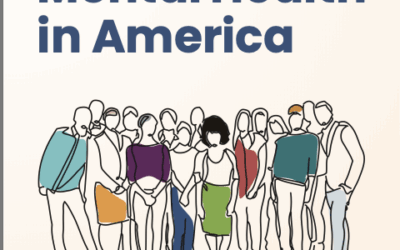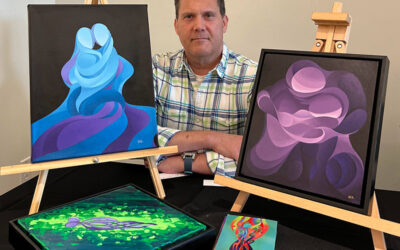When the University of Richmond announced that learning would switch to entirely remote education due to COVID-19, my heart sunk as I scrolled through the email. I knew it was coming amidst the plethora of bad news, but leaving Richmond for the rest of the year felt impossible, as it is my favorite place in the world.
What about our belongings? What about study abroad in the fall? What about internships for the summer? When will we see each other again? My group texts with college and high school friends were flooding with these questions, as we were not sure what our future college experiences were going to look like.
The wave of COVID-19 sweeping the nation has changed my day-to-day life as well as the millions of adolescents and young adults in similar positions. In addition, families, the economy, health care centers, and individual lives are at stake, as we all know by now.
My name is Anna Marston, this summer’s student intern with Mental Health America of Virginia, and I am a rising junior at the University of Richmond majoring in Psychology and Leadership Studies with a minor in Women, Gender, Sexuality Studies. Since I was diagnosed with an anxiety disorder and clinical depression in high school, I have been an active proponent for mental health. Where I now have risen from personal experience, I have felt since entering college that pushing for expanded mental health care and eliminating mental illness stigma is my passion. I am very fortunate to have received the mental health care I needed, so I feel that in my lifetime I want to work to expand health care access to marginalized and economically disadvantaged communities.
When I applied for an internship with Mental Health America of Virginia, I did not anticipate I would be working amidst a pandemic, but no one did. I am originally from Massachusetts, where the overall infection rate remains significantly higher than Virginia’s right now. Living at home since March, I have been excited to take my free time to learn more about mental health policy amidst this uncertain time.
As the situation worsened and I realized I would not be returning to school, one of my first thoughts was how my classmates and friends were going to fare at home. For many, college is the place they found their voices, escaped unhealthy homes and relationships, making new friends, and so much more. What were people going to do when going home for an extended period of time?
That is what this blog will seek to discover; in my experience, I have felt my own mental health struggling at times, but this blog is not about me. Over the course of my time with Mental Health America of Virginia, I am hoping to discuss the specific and interconnected implications that COVID-19 has left on young adults and adolescents. An April 2020 survey from Active Minds showed that 1 in 5 of college students said their mental health has significantly worsened under COVID-19. College-aged individuals are experiencing financial setbacks, exacerbated mental health conditions, stressful relocations to home, and sadness from leaving college.
This global pandemic will leave immense trauma on our world, and it’s important to consider how our own mental health conditions are impacted.
A few examples of topics with regard to the pandemic I would like to explore are:
- Abuse (sexual, physical, emotional, domestic, etc.)
- Anxiety & Depression
- Racial Disparities in Health Care
- LGBTQIA+ Discrimination
- Eating Disorders
- Experiences from International Students
- And hopefully much, much more
I will also be intermittently providing useful resources, peer support, hotlines, and other services that can be useful to readers during the pandemic. My goal is to segway viewers of my blog to resources they may find beneficial in supporting their mental health and their loved ones during such a trying time.
While I will post specific resources within each blog post, here is a comprehensive list from the Mental Health America National site in case you are looking for direct help now. Mental Health America also has free online screening that determines whether you are experiencing symptoms of a mental health condition, that can be done from home. If you are a Virginia constituent and want mental health support and referrals, you can reach out to the Warm Line at 1-866-400-MHAV (6428).
I am thrilled to have this opportunity to explore the important implications COVID-19 has had on our world so far, and what we can do to bring awareness and eliminate the stigma around mental health during this pandemic.
Anna Marston, Intern
Mental Health America of Virginia



